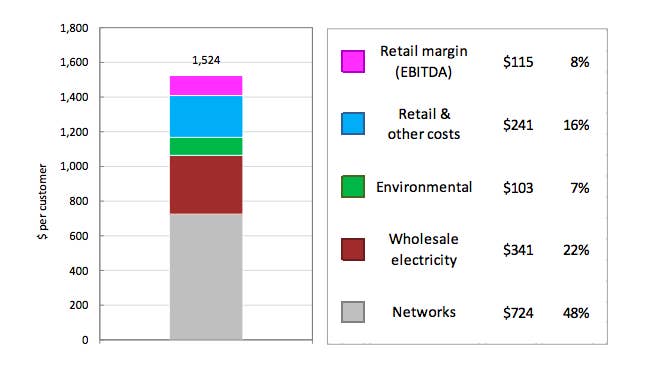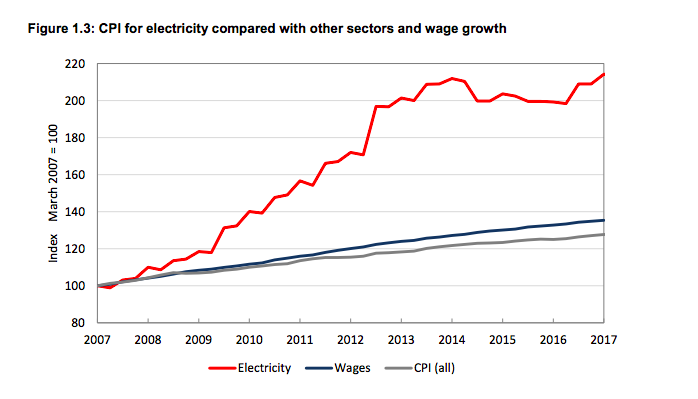
Environmental policies are responsible for 7% of the cost of electricity in Australia, according to the Australian Competition and Consumer Commission (ACCC).
In a preliminary report from the regulator's electricity pricing inquiry, the ACCC said the average power bill in 2015-2016 was $1524, an increase of 30% since 2007-2008.
Nearly half (48%) of an electricity bill in Australia was due to the cost of building and maintaining the networks that distribute power from the generator to the customer.

Wholesale electricity prices — the amount it costs the retailer to buy electricity from the generator — made up 22% of bills, but the ACCC found this was likely to go up when data from the last financial year was included.
It also found that there was a "severe affordability problem" across the national energy market in Australia, and the price rises in electricity across the past 10 years had put Australian businesses and consumers under "unacceptable pressure".

The lack of competition in the generation and retail markets was a significant factor in price rises across the last 10 years, the ACCC said.
While most jurisdictions in the national electricity market (which excludes Western Australia and the Northern Territory) have more than 19 retailers selling electricity supply, the big three companies that own the generators and offer retail services — AGL, Origin and EnergyAustralia — account for over 60% of the market.
The ACCC said there had been "limited erosion" in the big three's market share in the past five years, and pointed to issues with competition between these companies and the smaller retailers.
The ACCC reported that the smaller retailers often complained about the difficulty of entering the market because when they tried to woo over new customers, the big companies would engage in "aggressive" win-back strategies for customers who threaten to leave their provider; and those who do leave are often targeted with discounted rates from their old provider in an effort to get them to switch back.
The so-called gold-plating of the distribution network by what the ACCC called "over-investing" in poles and wires, has locked in the costs of supplying electricity. The ACCC blamed this on the companies incorrectly forecasting the demand on the networks, as well as complying with regulation around bushfires. This meant that the gold-plating would burden electricity users "for decades to come".
The 7% cost of state and federal environmental schemes included cross subsidies (for example, people who are rewarded for installing solar panels, and then sell their excess energy back to the network).
The Turnbull cabinet will today consider an energy package, with the Coalition party room expected to debate it on Tuesday. Energy minister Josh Frydenberg has indicated the government may not adopt the chief scientist Alan Finkel's recommendation for a clean energy target to replace the renewable energy target from 2020.
